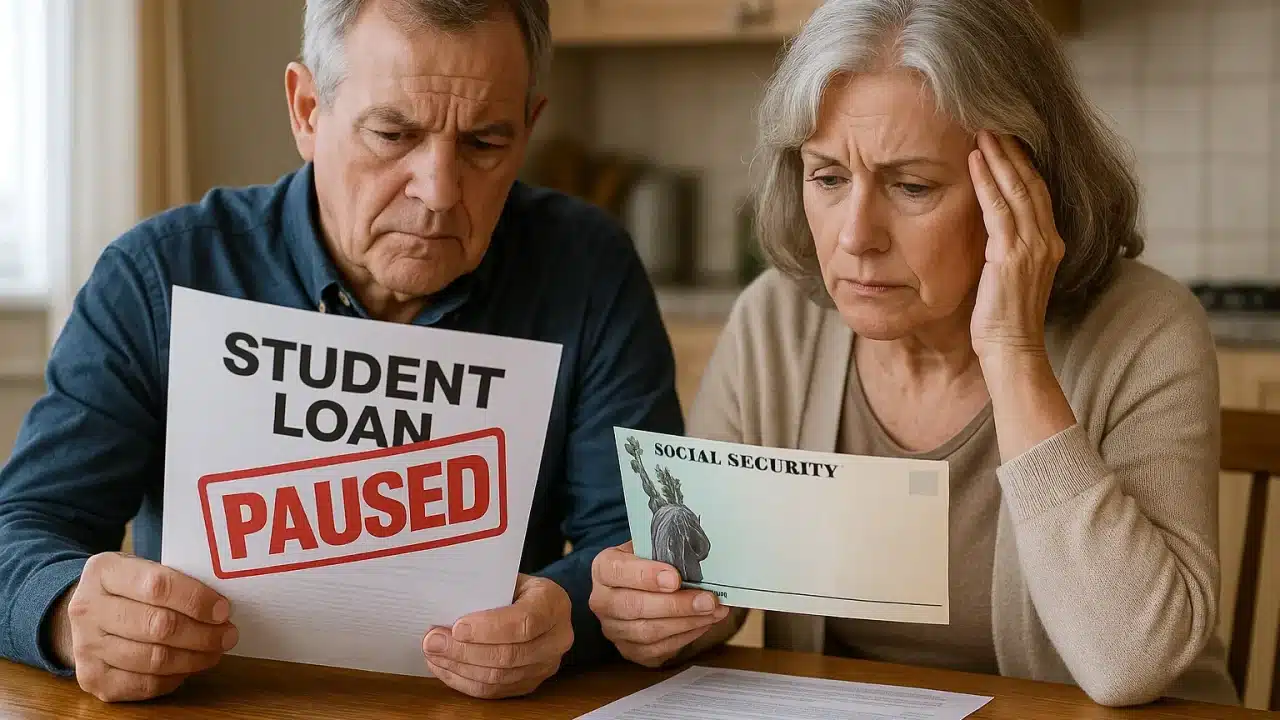
Facing mounting backlash from retirees and disability advocates, President Donald Trump has temporarily paused the controversial policy that allowed the federal government to garnish Social Security benefits from Americans who defaulted on their student loans.
The policy, which quietly took effect at the start of June 2025, enabled the U.S. Department of Education to resume deductions from monthly Social Security payments for those with long-delinquent federal student debt.
Now, that order has been put on hold as the administration faces bipartisan scrutiny and a wave of negative headlines.
What Was the Policy?
Under the Higher Education Act, the federal government has long held the legal authority to withhold a portion of Social Security checks to recover student loans that are in default. Previously, up to 15% of monthly benefits could be garnished once borrowers fell more than 270 days behind.
Although the practice was paused during the COVID-19 emergency and under President Biden’s broader student debt forbearance, the Trump administration moved to reinstate it this June as part of its “accountability in borrowing” initiative.
According to a report from NewsNation, the policy initially targeted more than 140,000 retirees and disabled Americans who collectively owed over $1.3 billion in defaulted student debt.
Immediate Impact on Social Security Payments
The garnishments began appearing in early June payments, reducing Social Security checks by as much as $300 per month in some cases. For many seniors already living on fixed incomes, the sudden loss caused distress and confusion.
One Michigan woman told MLive she saw her monthly benefit drop unexpectedly. “I don’t even remember these loans,” she said. “That money is the difference between groceries and going hungry.”
The SSA confirmed it had begun processing the offsets after receiving authorization from the Department of Education but was working to notify all affected beneficiaries.
Trump’s Reversal: A Strategic Pause
After intense public reaction and concern from lawmakers on both sides of the aisle, Trump reversed course. On June 2, he announced a temporary pause on the garnishments, saying in a statement that “no senior should have their retirement jeopardized over decades-old debt.”
As reported by CNBC, the administration has instructed the Education Department to halt new offsets and re-evaluate the policy’s scope and fairness.
White House aides clarified that this is a pause, not a cancellation. The policy could resume later this year after a review process, which includes input from the Social Security Administration, Department of Education, and Treasury Department.
What Social Security Beneficiaries Should Know
Here’s what Social Security recipients affected by this garnishment policy need to keep in mind:
- Payments will be restored for those who had deductions made in early June, but processing refunds may take several weeks.
- No new garnishments will be made during the pause.
- The review window may lead to policy changes, including adjusted thresholds or hardship exemptions.
- Defaulted borrowers are encouraged to contact the Department of Education’s Federal Student Aid division to explore repayment plans or debt rehabilitation programs.
Broader Implications for Social Security
This controversy underscores a broader issue: rising student loan debt among older Americans. As of 2025, over 3 million Americans aged 60 and older owe federal student loans, according to government data. Many are parents who co-signed loans for their children or went back to school later in life.
Critics argue that clawing back Social Security checks violates the social contract and disproportionately impacts low-income seniors and those with disabilities.
Advocacy groups are now calling for Congress to pass legislation that would permanently ban student loan garnishments from Social Security, regardless of administration policies.
What’s Next For Social Security Beneficiaries?
For now, the Trump administration appears to be walking a political tightrope — attempting to enforce fiscal responsibility while avoiding a populist backlash among one of its key voter blocs: seniors.
A final decision is expected by late summer, and further updates from the White House and Department of Education are anticipated in the coming weeks.
📌 Stay Updated:
Follow FingerLakes1.com for breaking updates on Social Security payments. For immediate assistance, visit studentaid.gov or call the SSA directly.

